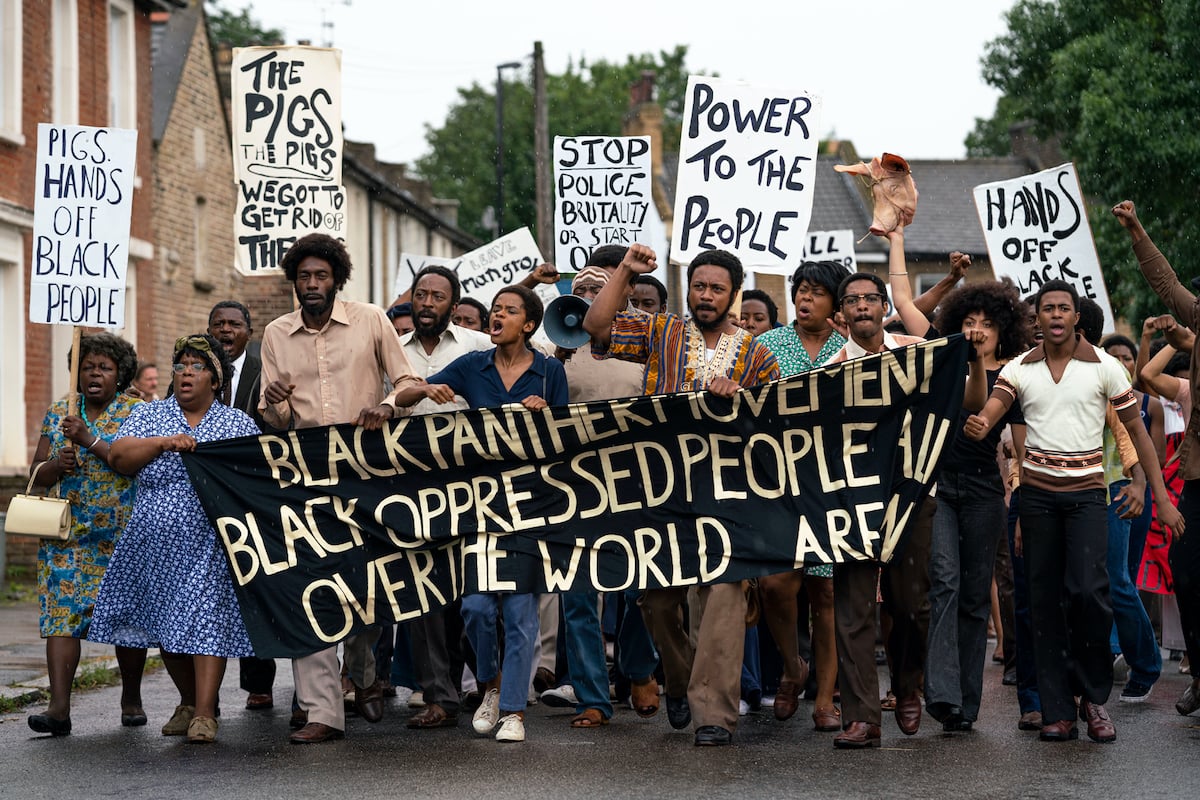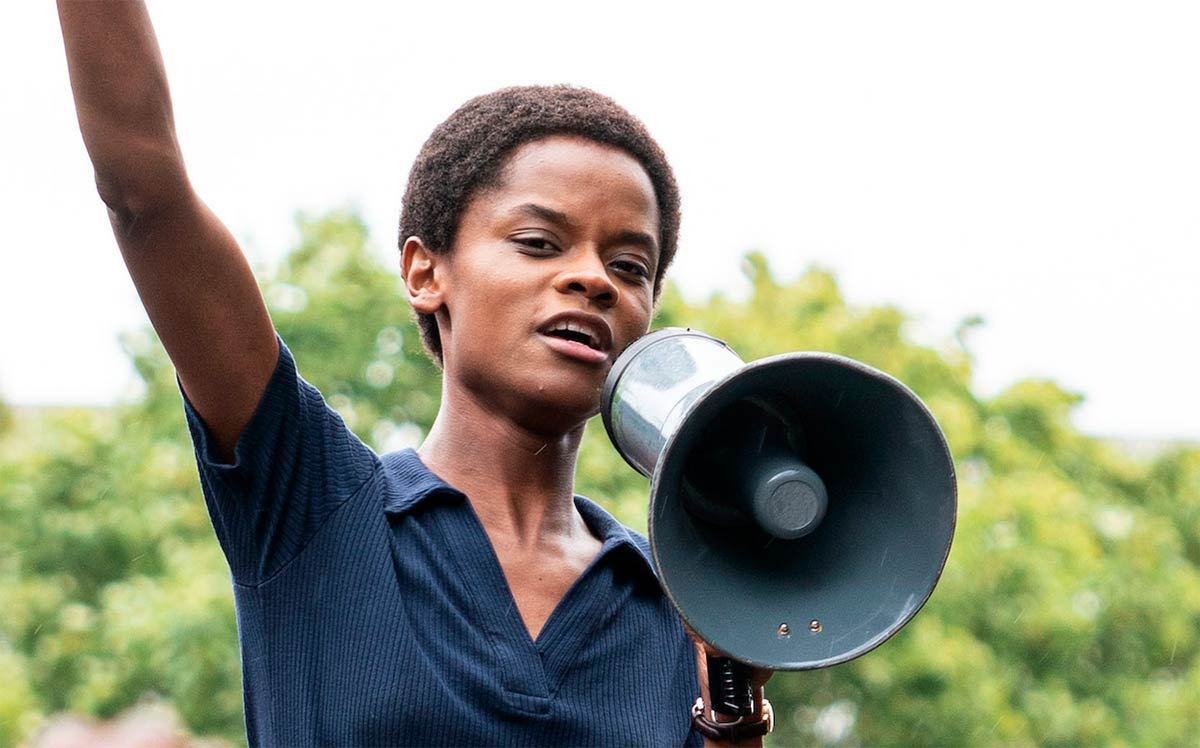‘Mangrove’ Will Leave You Enraged, but That’s the Point
Like Lover’s Rock, Mangrove, the first film chronologically in Steve McQueen‘s Small Axe series, begins with a song. Based on a true story, the film opens in 1968. We meet Frank Crichlow (Shaun Parkes), a self-assured Black man who smokes and plays card games in a vibrant room with other men. The liveliness and color he’s initially surrounded with fade into a muted neutral color as he descends up into London’s streets and walks forward into the community of Notting Hill.
Frank is on a mission. Having closed his previous establishment that appeared to be a catch-all of questionable activity, including numbers running and a meeting place for alleged criminals, he’s ready to open his Mangrove restaurant. A Trinidadian-born Londoner, Frank is proud to serve dishes and deliver ambiance so near and dear to him.

‘Mangrove’ shows anti-Blackness is global
The restaurant is an immediate hit with members of the West-Indian community who are called to Mangrove’s curry spices and the sounds of reggae music. Also, despite Frank’s apprehension, the restaurant quickly becomes a meeting spot for Altheia Jones-LeCointe (Letitia Wright), the leader of the British Black Panther Party, as well as activists Darcus Howe (Malachi Kirby) and Barbara Beese (Rochenda Sandall). Though the U.K. often turns their nose up at racial relations in the United States, it’s clear from the history books and this searing retelling of the real-life Mangrove Nine that anti-Blackness is global. As violate as things became in the States during the ’60s, tensions also came bubbling to the top in the U.K.
When it comes to race and racial violence, things tend to explode when the oppressor sees the oppressed living peacefully — happily enjoying the freedoms the system did not intend to give them. This is what occurred between Frank and Police Constable Pully (Sam Spruell). Enraged at the mere sight of Frank and the thriving Mangrove, Pully begins a mission of harassment that leads to constant raids at the Mangrove and even beating and aggravating the restaurant’s consumers. It nearly drives Frank to his breaking point.

‘Mangrove’ doesn’t find its footing until the second half
At 126 minutes, Mangrove is a saga split into two parts. The first hour is a jolting depiction of Black existence interrupted. Amid parties, dinners, and talks, Pully and his crew come thundering into the world of the Mangrove, waving their batons and smashing everything and everyone down in their wake. Parkes is exceptional as Frank, an irate Black man insistent on his rights, and often forceful even though Pully pulls and toys with the law at a whim.
Altheia, Darcus, and Barbara also don’t shy away from their pain and anger. Barbara is particularly disgusted with the injustices that have followed her throughout her life. She’s thunderous with her anger. Still, though we begin to understand Frank and the Mangrove Nine in the first hour of the movie, Mangrove doesn’t soar as a film until the second half. Following a 1970 protest around Noting Hill after yet another raid on the restaurant, Frank, Altheia, Darcus, Barbara, and five others are arrested. The group is charged with incitement to riot, which could lead to a 10-year prison sentence.
‘Mangrove’ proves we must confront the past to thrive in the present
The second half of Mangrove is told mostly in the courtroom as the volatile trial unfolds. These scenes are ripe with all of the tensions and actions found in a riveting and well-paced courtroom drama. Altheia and Darcus represent themselves, standing tall amid the nearly all-white judge, jury, and lawyers. Their ability to poke holes in Pully’s statements while exposing the rotting racism in the U.K.’s judicial system was thrilling cinema.
It’s in these moments when McQueen grabs his viewers by our collars, connecting us with the characters as their fates hang in the balance. There is the judge’s frown of inconvenience, the Mangrove Nine and their lawyers’ incredulous looks at everything happening, and even Pully’s quiet rage, the camera zooming in on his clenched fist as he’s subjected to Altheia and Darcus’ cross-examinations.
Though it takes a moment for McQueen to find his footing with Mangrove, the journey is well worth it. Whether you know the outcome of the Mangrove Nine and Frank Crichlow’s story or not, as the camera zooms into Frank’s tear-stained face while the jury hands down their verdicts, it cannot be overstated how much the past continues to speak to our present calls for police and judicial reform.
Mangrove was screened for the 2020 New York Film Festival.


